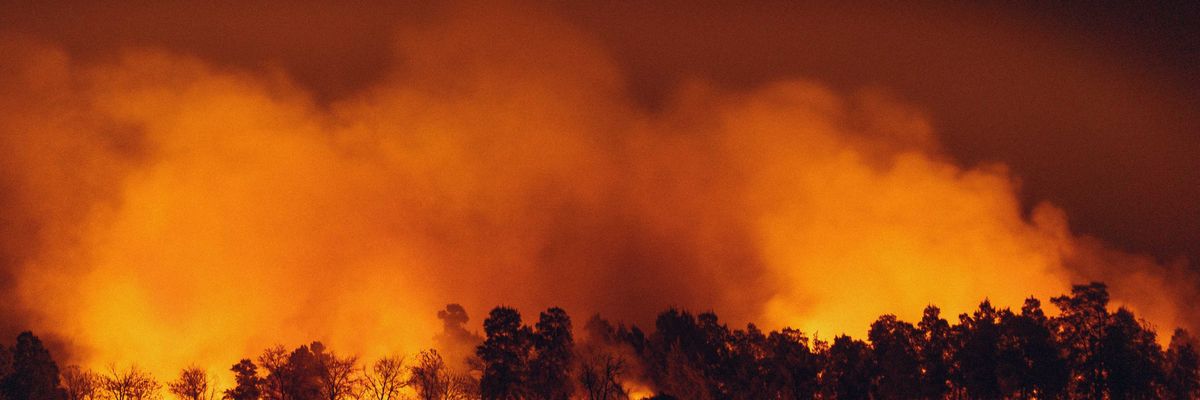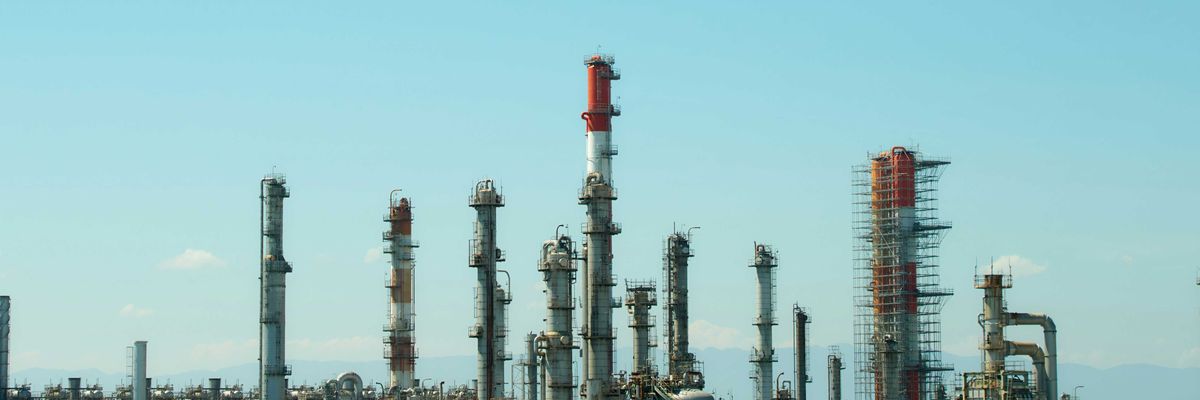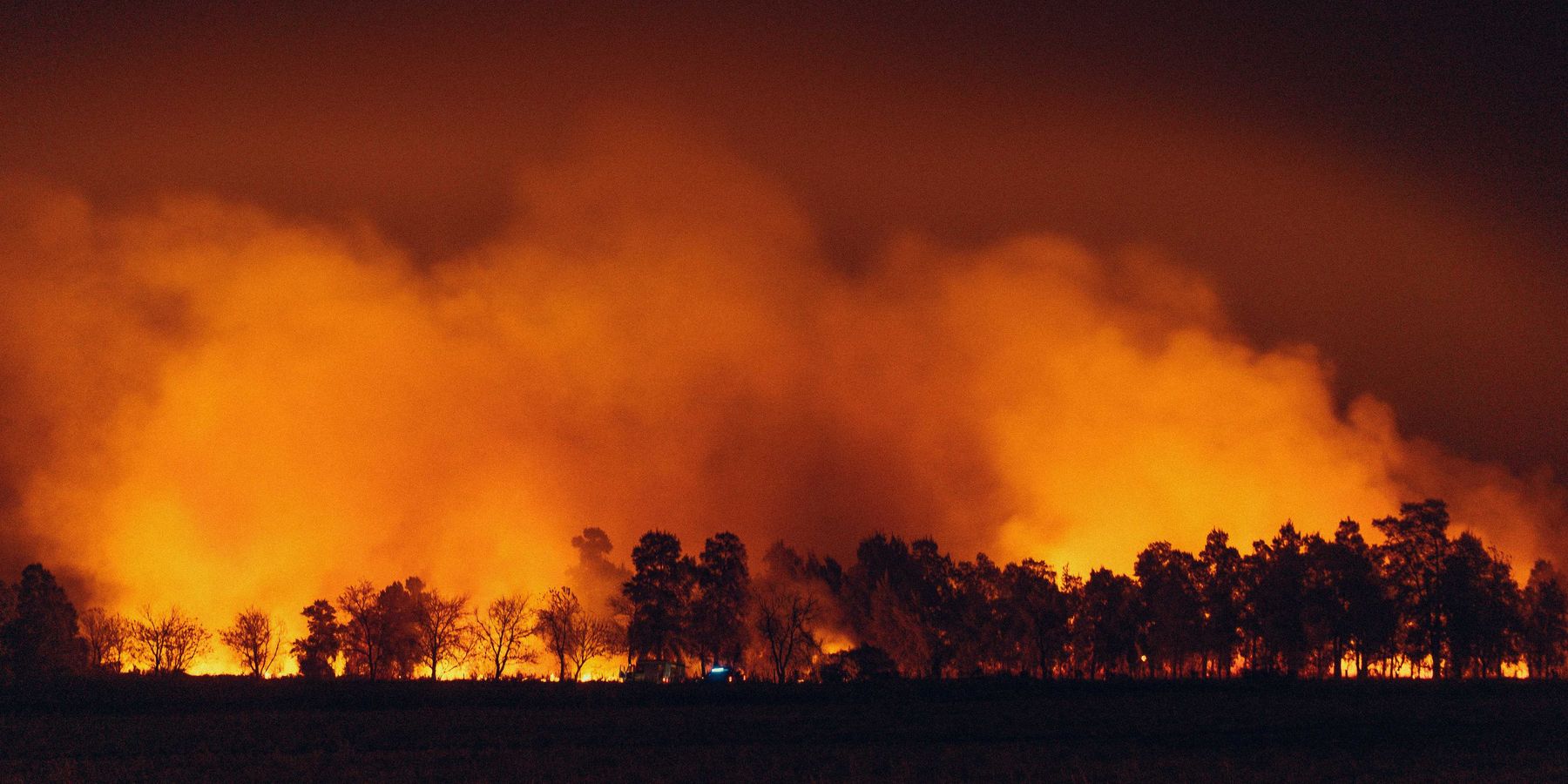wisconsin
Voters face stark climate choices in Wisconsin Senate race
Wisconsin voters will decide between Democratic Senator Tammy Baldwin, a climate advocate, and Republican Eric Hovde, who criticizes clean energy incentives as "corporate welfare."
In short:
- Baldwin, seeking a third term, is known for her strong pro-environment voting record and support of clean energy initiatives.
- Hovde, a businessman, has expressed skepticism about federal clean energy tax credits, despite benefiting financially from investments in green energy companies.
- Climate change may not dominate the race, but it could sway crucial independent voters concerned about its economic impact on their communities.
Key quote:
“I believe in green energy, but to think we are going to move an economy this size… in the matter of a decade, you are smoking crack cocaine.”
— Eric Hovde, Wisconsin Senate candidate
Why this matters:
The outcome could influence national climate policy, with potential implications for clean energy investments and climate resilience efforts across the country.
Be sure to read: Midwest experiences winter warmth disrupting life and economy
Tribes and conservationists work to save spearfishing from climate change
As climate change impacts walleye populations in Wisconsin lakes, Indigenous tribes and conservationists are striving to preserve the traditional practice of spearfishing.
Melina Walling and John Locher report for The Associated Press.
In short:
- Ojibwe and other Indigenous tribes rely on spearfishing for food, cultural connection, and tradition, but climate change and lakeshore development threaten walleye populations.
- Conservation efforts include permits to limit fish catch and fish stocking, but natural reproduction remains a challenge due to environmental changes.
- Indigenous knowledge is increasingly valued in conservation strategies to adapt to these changes and ensure sustainable fishing practices.
Key quote:
“We’ve seen things here over the last couple of years that I’ve never seen before. It worries me, what I’ve seen in my lifetime, what’s my grandson going to see in his lifetime?”
— Brian Bisonette, conservation director of the Lac Courte Oreilles Conservation Department
Why this matters:
Climate change and habitat loss threaten Indigenous food sources and cultural traditions. Collaborative conservation efforts aim to preserve these practices for future generations, emphasizing the intersection of environmental and cultural sustainability.
Justice Department supports Wisconsin tribe in pipeline dispute
In a recent legal development, the Justice Department has sided with a Wisconsin tribe's claim against a Canadian energy company over land rights, sparking controversy.
In short:
- The DOJ supported the Bad River Band's claim that Enbridge has trespassed on tribal land by operating the Line 5 pipeline, suggesting a higher compensation than the court-ordered $5.15 million.
- Despite DOJ's support, the request for immediate cessation of the pipeline's operation was not granted, raising concerns among tribal leaders.
- The broader implications involve international treaties and ongoing diplomatic tensions between the U.S. and Canada over pipeline operations.
Key quote:
“We are grateful the U.S. urged the court not to let Enbridge profit from its unlawful trespass.”
— Robert Blanchard, chairman of the Bad River Band of the Lake Superior Chippewa Indians
Why this matters:
Enbridge maintains that its projects are crucial for economic development and energy security, emphasizing its commitment to safety and environmental stewardship. The company also points to regulatory approvals and its efforts to consult with tribal communities as evidence of its attempt to balance these interests.
Tribal leaders and advocates argue that consultations are often inadequate and do not equate to obtaining free, prior, and informed consent—a standard set forth in the United Nations Declaration on the Rights of Indigenous Peoples.
Debate intensifies over Superior's proposed gas plant
A proposed $700 million gas plant in Superior, Wisconsin, is causing division among locals, with some seeing it as a job creator and others worrying about environmental and cultural impacts.
In short:
- The Nemadji Trail Energy Center faces criticism for potential environmental damage and disregard for tribal lands.
- Recent city council decisions reflect growing opposition, questioning the project's alignment with community and environmental values.
- The project, still lacking several permits, also clashes with state and federal renewable energy goals.
Key quote:
“It provides extraordinary benefits as an undeveloped wetland. It is adjacent to a river and I generally believe, and I believe my opinion is shared by many members of the community, that waterfront — especially undeveloped waterfront — is best left undeveloped for public use.”
— Jim Paine, mayor of Superior
Why this matters:
Critics of the Nemadji Trail Energy Center raise concerns about potential harm to public health and the environment, including harmful emissions, noise pollution, and impacts on local property values. The project is expected to produce 2.7 million tons of greenhouse gas emissions annually, albeit with a reduction of about 964,000 tons per year by displacing coal plants. Locating NTEC near tribal lands and a historic Ojibwe burial ground adds to the complexity, with tribes fearing the disturbance of their ancestors' remains and environmental damage
As Pittsburgh touted its environmental progress in 2018, a massive petrochemical makeover was taking place in the surrounding region. Tribes and environmental groups argued against a future of pipelines and plastic production.
Enbridge seeks to overturn Line 5 shutdown on tribal land in Wisconsin
Enbridge, a Canadian pipeline company, is challenging a federal court's shutdown order of its Line 5 pipeline on the Bad River Reservation in northern Wisconsin, citing a 1977 U.S.-Canada treaty.
Phil McKenna and Noel Lyn Smith report for Inside Climate News.
In short:
- Enbridge argues that the 1977 U.S.-Canada treaty, which ensures uninterrupted oil flow between the two countries, should override the shutdown order.
- The Bad River Band of the Lake Superior Tribe of Chippewa Indians opposes the pipeline, citing risks to their water resources and traditional ways of life.
- Legal experts and environmental advocates view Enbridge's argument as a last-ditch effort, potentially undermining state and tribal rights to protect their lands.
Key quote:
"If you can’t protect your land from a trespass because of the oil pipelines, what’s the point of having your own land?"
— Debbie Chizewer, attorney for Earthjustice.
Why this matters:
This legal battle is significant as it highlights the tension between Indigenous rights, environmental protection, and international agreements. The outcome could set a precedent for how treaties and tribal sovereignty are balanced in environmental and energy disputes.
Related: Enbridge's Line 3 pipeline construction is running into tribal resistance over fears of water pollution, wild rice impacts, climate change, and exploitation of Native women.
Electric vehicle charging legislation is urgent in Wisconsin, with federal funds at stake
Wisconsin will lose out on millions of federal dollars for electric vehicle charging infrastructure if the state does not pass legislation to allow stores or other owners of EV chargers to bill drivers for the amount of electricity they get when they plug in.
Wisconsin solar bill stymied by utility and labor opposition
A Wisconsin bill that would enable third-party-owned community solar has failed to progress this fall as backers had hoped, and time is running out for a hearing to be held before the session ends on Nov. 16.









